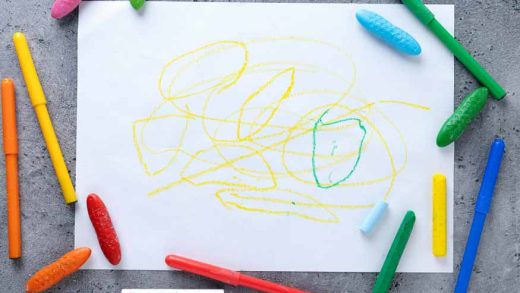Building a strong foundation for a child’s development involves understanding and incorporating effective learning strategies. One such crucial aspect is the role of repetition in a young child’s life. This article delves into the significance of repetition, exploring what it is, why it matters in early childhood and the benefits it brings.
What is Repetition?
Repetition, in the realm of early childhood development, is a fundamental learning principle that involves the consistent practice of the same activities, actions, or information. It is a dynamic process wherein children engage in repeated exposure to specific stimuli, be it through actions, words, or routines. Repetition is not merely the act of duplicating tasks but a deliberate and purposeful approach to reinforcing essential concepts in a child’s mind.
At its core, repetition serves as a powerful tool for cementing knowledge, forming neural connections, and creating a solid groundwork for a child’s cognitive and emotional development. It involves the recurrence of experiences, allowing young minds to navigate and comprehend the complexities of the world around them. Repetition manifests in various forms, from the consistent use of language to the recurrence of daily routines and the revisiting of activities that contribute to skill development.
Importance of Repetition in Early Childhood
Building a Solid Foundation
Repetition acts as the building block for a child’s understanding of the world around them. By encountering familiar concepts repeatedly, children begin to grasp fundamental ideas, forming a solid foundation for future learning. This repetition creates a sense of predictability and security, essential for a child’s overall well-being.
Enhancing Memory Retention
Repetition aids memory retention by reinforcing neural pathways. Just as adults benefit from reviewing information to remember it better, young children absorb and retain knowledge more effectively through repetitive exposure. This repetition fosters not only memory but also the ability to recall information when needed, a skill vital for lifelong learning.
Developing Essential Skills
Incorporating repetition into early childhood activities contributes to the development of essential skills such as language acquisition, motor skills, and problem-solving abilities. The consistency helps children refine and master these skills over time. For example, repeating motor activities like crawling, walking, and grasping objects strengthens a child’s physical coordination.
Benefits of Repetition in Early Childhood
Language Development
Repetition plays a crucial role in language acquisition. By hearing and practicing words and phrases repeatedly, children enhance their vocabulary and comprehension skills. This sets the stage for effective communication later in life. Additionally, repetition in language development supports the understanding of syntax and grammar, laying the groundwork for articulate and expressive communication.
Emotional Stability
Consistent and repetitive routines provide a sense of security for young children, promoting emotional stability. Predictable patterns help them feel in control of their environment, reducing anxiety and fostering a sense of safety. Emotional stability is a cornerstone for healthy social and emotional development, enabling children to navigate challenges with resilience.
Cognitive Growth
Repetition stimulates cognitive growth by reinforcing patterns and connections in the brain. It enhances a child’s ability to recognize, understand, and solve problems, laying the groundwork for critical thinking skills. The repetitive nature of activities challenges the brain, encouraging the development of cognitive functions like memory, attention, and problem-solving.
Social Skills
Engaging in repetitive activities with peers fosters social development. Shared routines create a sense of camaraderie and cooperation, teaching children how to interact positively with others. Social skills developed through repetition include sharing, taking turns, and understanding social cues, which are essential for building meaningful relationships later in life.
Repetition Method: How to Implement Effectively
Establish Consistent Routines
Create consistent daily routines to provide a structured environment for children. This predictability aids in forming positive habits and expectations. Whether it’s bedtime routines, mealtime rituals, or playtime schedules, repetition in routines contributes to a child’s sense of security and understanding of the world’s order.
Use Repetition in Play
Incorporate repetitive elements into playtime activities. Whether it’s stacking blocks, playing with puzzles, or singing familiar songs, these activities contribute to learning through repetition. Play is a natural and enjoyable way for children to engage in repetitive behavior while developing essential skills. Through play, children learn about cause and effect, patterns, and coordination.
Encourage Reading Aloud
Reading the same books aloud helps reinforce language skills. Children benefit from hearing the same words and phrases, enhancing their comprehension and fluency. Repetitive reading not only supports language development but also fosters a love for books and storytelling. It creates a bonding experience between parents or caregivers and children, emphasizing the importance of repetition in nurturing relationships.
Be Patient and Supportive
Recognize that repetition is a natural part of a child’s learning process. Be patient and supportive, offering encouragement as they navigate through repetitive experiences. Celebrate their achievements and milestones, reinforcing positive behaviors and efforts. A supportive environment encourages children to explore, learn, and engage in repetitive activities with confidence.
Repetition doesn’t stifle creativity; instead, it provides a framework for it to flourish. Through repeated exposure to various stimuli, children develop a deeper understanding of the world, fostering imaginative and creative thinking. Repetition in artistic activities, such as drawing or crafting, allows children to explore their creative instincts and express themselves freely.
Adapting to Change
While repetition provides stability, it’s equally crucial for children to experience and adapt to change. Introducing new elements within a familiar routine helps children develop flexibility and resilience. Balancing repetition with exposure to new experiences prepares children for the dynamic nature of life, teaching them to navigate changes with confidence.
As parents and caregivers, your commitment to understanding and embracing the importance of repetition contributes significantly to your child’s growth. The journey is ongoing, and the next steps involve continuously observing and adapting to your child’s evolving needs and interests.
For a nurturing and supportive early learning environment, consider Kangaroo Kids. Our programs are designed to promote comprehensive development in young minds. Visit our website to explore how we prioritise learning through engaging and repetitive methods.
Remember, as you embark on this journey with your child, the power of repetition can be a guiding force, shaping a bright and resilient future. Embrace the balance between routine and novelty, fostering an environment where your child can thrive intellectually, emotionally, and socially.








